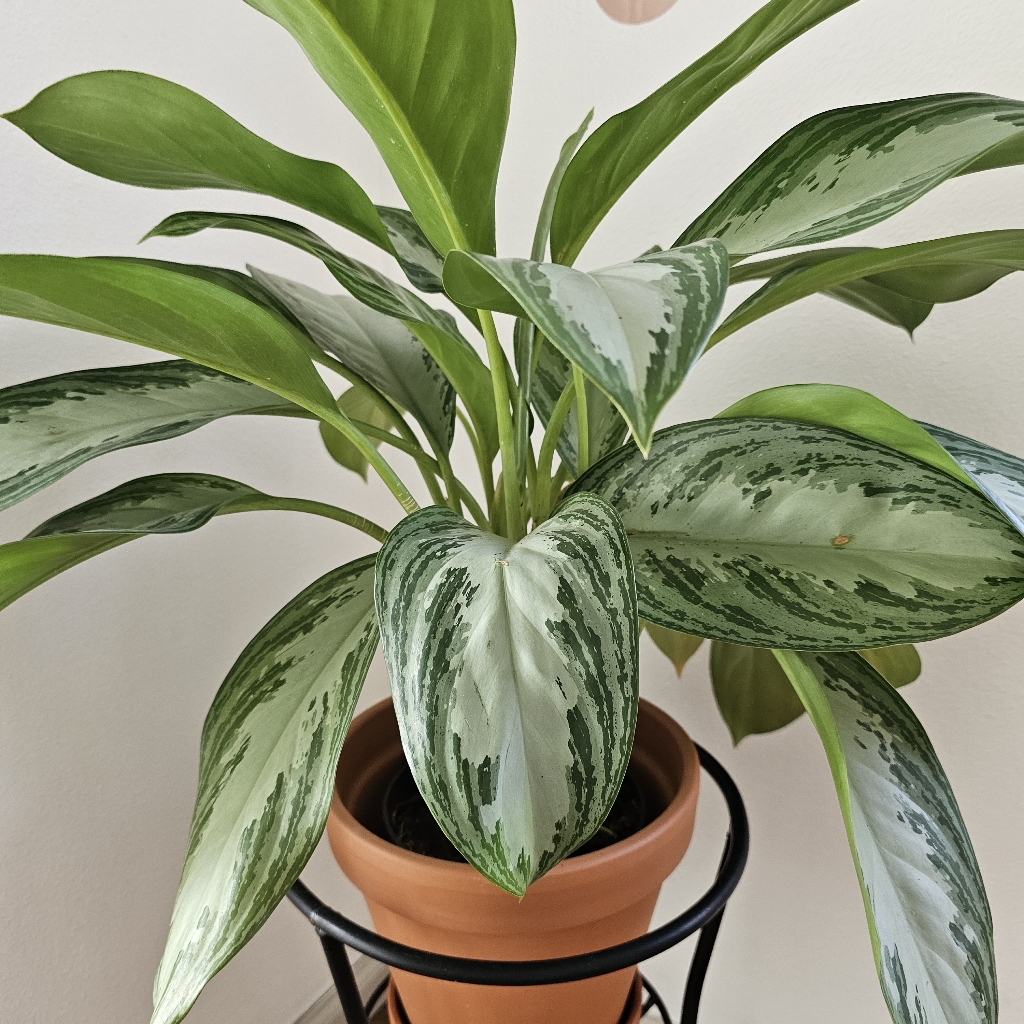How to grow and care for Aglaonema commutatum Schott
plant care guide about watering, fertilizing, trimming, repotting, cutting, propagating Aglaonema commutatum Schott, Poison dart plant
Aglaonema commutatum Schott 101 - Plant Care Instructions
Medium
18C° ~25C°
Every 7 days
Botany Encyclopedia
Genus : Aglaonema
🏝️ Habitat Conditions
This plant grows in the humid and shaded rainforests of China and Southeast Asia. It thrives in warm areas with indirect light.
🪨 Soil Mix
When planting, it's best to use well-draining soil. Generally, mix 40% potting soil, 20% bark, 20% leaf mold, 10% perlite, and 10% charcoal. However, you can adjust the ratios based on the situation and environment.
🌡️ Environment
This plant prefers temperatures between 21-25°C, with a minimum of 13°C. It thrives in humidity levels of 40-70% and enjoys a humid environment like a rainforest. However, ensure good air circulation to prevent mold and pests.
👀 Characteristics details
#ERROR!
☀️ Light
This plant thrives in indirect light rather than direct sunlight, as it grows in the lower regions of rainforests. The more patterns on the leaves, the better it grows with prolonged light exposure.
💧 Water
When the surface soil is dry, water the plant.
🌱 Propagate
Offsets can be separated for propagation, and stems can be cut and propagated as well. For stem cuttings: 1. For water propagation, avoid using a transparent container. Place the stem in water, and once roots appear, add hydroponic fertilizer. When roots are 5-7 cm long, transfer to soil. 2. For soil propagation, plant the cutting deeply in soil without fertilizer. After propagation, avoid exposing the plant to bright light. Gradually increase light exposure to help it adapt to gentle light. Maintain high humidity and keep the temperature between 16-20°C.
🪴 Repot
Repot healthy plants every 2-3 years in spring, as they do not grow quickly.
💊 Fertilize
Use fertilizer at the recommended amount during spring and summer to encourage more vigorous growth.
🌺 Flower
The inflorescence flowers are not particularly attractive, so the plant is mainly enjoyed for its foliage. It is difficult to see the flowers when grown indoors.
😵 Toxicity
Be cautious with pets and young children as it is toxic.
water
How to water Aglaonema commutatum Schott
How often should I water?
check Aglaonema commutatum Schott Every 7 days if it needs water when it’s very cold (below 5℃), water less frequently
When do I need to water?
the top 2-3 inches of soil is dry
Light & Location
How much light does a Aglaonema commutatum Schott need?

Medium
Grow light
Low
Light preference
Aglaonema commutatum Schott likes Medium, Low, Grow light day. The brighter the space, the better this plant grows.
Check if there’s an optimal place in your house!
This plant prefers
500 ~ 2K lux to thrive!
0
20K~
500
2K
Temperature
Natural habitat
-15
8~40℃
45
Houseplants
-15
18~25℃
45
Plants that grow in the wild and those that grow indoors prefer different temperatures. If you grow Aglaonema commutatum Schott at home, make sure the temperature is 18~25℃.
Humidity
Ideal humidity
0
40~70%
100
Aglaonema commutatum Schott prefers humidity about 40~70%. If necessary, increase humidity by misting, humidifier.
Fertilize
Collective Knowhow
When should I fertilize?
Only when your plant is healthy
How frequently should I fertilize?
1-2 times in growing season. A pinch for a small pot.
Characteristic
The taxonomic classification of Aglaonema commutatum Schott is as follows. - Kingdom: Plantae, Phylum: Tracheophyta, Class: Liliopsida, Order: Alismatales, Family: Araceae, Genus: Aglaonema, Species: Aglaonema commutatum
| Characteristic Name | Characteristic Value |
|---|---|
| Lifespan | Perennial |
| Habitat | Southeast Asia |
| Taxonomy Name | Taxonomy Value |
|---|---|
| Phylum | Tracheophyta |
| Class | Liliopsida |
| Order | Alismatales |
| Family | Araceae |
| Genus | Aglaonema |
| Species | Aglaonema commutatum |
Is Aglaonema commutatum Schott toxic?
Aglaonema commutatum Schott is dangerous to Dog
Dog
Is your plant sick?
Track what happened. We’ll let you know the cause and treatment shortly!





1:1 Expert Help
You’ll get professional feedback within 24 hours from an expert on our team.
feedback will include










